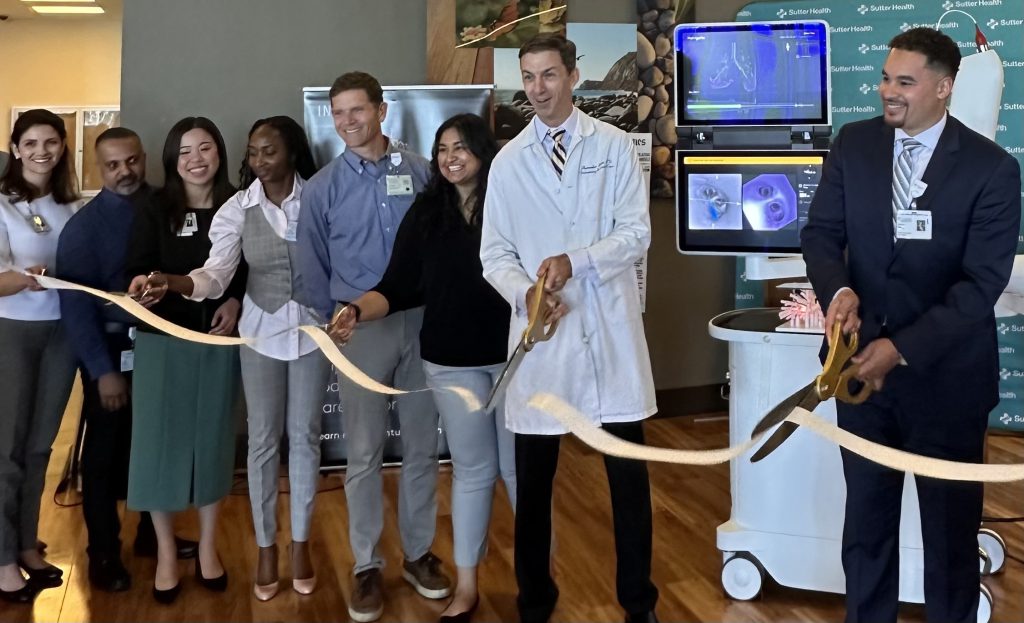SACRAMENTO, Calif.–Today, not-for-profit Sutter Health announces its participation in the Centers for Medicare & Medicaid Services’ (CMS) Medicare Shared Savings Program (MSSP) as of Jan. 1, 2023.
MSSP is a value-based payment model within Original Medicare designed to achieve better health for individuals, promote accountability for a patient population, and lower the total cost of care. MSSP is CMS’ cornerstone Accountable Care Organization (ACO) program with more than 480 ACOs serving 11 million patients nationwide. Doctors and other clinicians come together in an ACO and are accountable for the quality, cost and care experience of assigned patients.
Sutter joined MSSP through its ACO, Sutter Preferred Direct Contracting Entity, LLC, doing business as Sutter Medicare Direct. All Sutter medical foundations are participating in this ACO. Patients with Original Medicare (also known as Fee-For-Service Medicare) who receive most of their primary care from medical foundation physicians and clinicians are assigned to Sutter Medicare Direct—approximately 130,000 Northern Californians. The program does not change a patient’s benefits, doctors, or coverage. Sutter Medicare Direct simply works behind the scenes with doctors and clinicians to improve care and health outcomes.
“With more than 10,000 people across the nation turning 65 every day, the Medicare population is one of the fastest growing patient segments,” says Todd Smith, executive officer of Sutter Medicare Direct. “Sutter cares for more than a quarter of all the patients with Medicare in the communities we serve. That’s why it’s imperative that we participate in value-based payment models that promote even better care for our patients, expand support for our physicians and clinicians and offer greater financial accountability.”
A population health approach with a focus on health outcomes
Sutter is implementing a number of population health programs that reduce the burden of chronic illness for patients and improve its care teams’ effectiveness in MSSP. For example, Sutter provides care teams with population health management support, using data and analytics to identify patients at high or rising risk for complications. Care managers then work as an extension of the primary care team, developing comprehensive, tailored plans with goals in coordination with the patient and their doctor. Care managers follow patients for 30, 60 or 90 days as needed, providing education, symptom review, caregiving support as well as connections with other Sutter Health programs and community support services.
“We’re excited about the meaningful impact our population health approach is having on our patients,” says Chris Stanley, M.D., Sutter Health’s chief population health officer. “We’ve already seen a significant decrease in the use of hospital services—including a reduction in unnecessary hospitalizations and emergency department visits—for patients served by our Advanced Illness Management program. This is just one of the many programs in place to deliver proactive and better care for patients.”
Additionally, MSSP allows Sutter to offer patients access to services not typically covered by Original Medicare. Assigned patients with an identified skilled nursing facility care need can access these services, even if they haven’t stayed in a hospital for three days first. Also, assigned patients can receive telehealth services for certain services from the comfort of their home or other settings, allowing them to communicate in real time with their doctors and clinicians.
Joining MSSP expands on Sutter’s long-time participation in value-based payment models. In fact, the health system currently cares for over 500,000 patients in risk-based models. This includes participating in commercial and government managed care plans and commercial ACOs. And Sutter also operates a provider-sponsored health plan, Sutter Health Plus, which has more than 100,000 members.
“By joining this program, we’re taking on more responsibility and a higher level of accountability for the care and experience we deliver to our Original Medicare patients. It also supports the work we’re doing to better support our physicians at the point of care and beyond—all with a focus on the health and wellbeing of our patients,” continues Smith.




